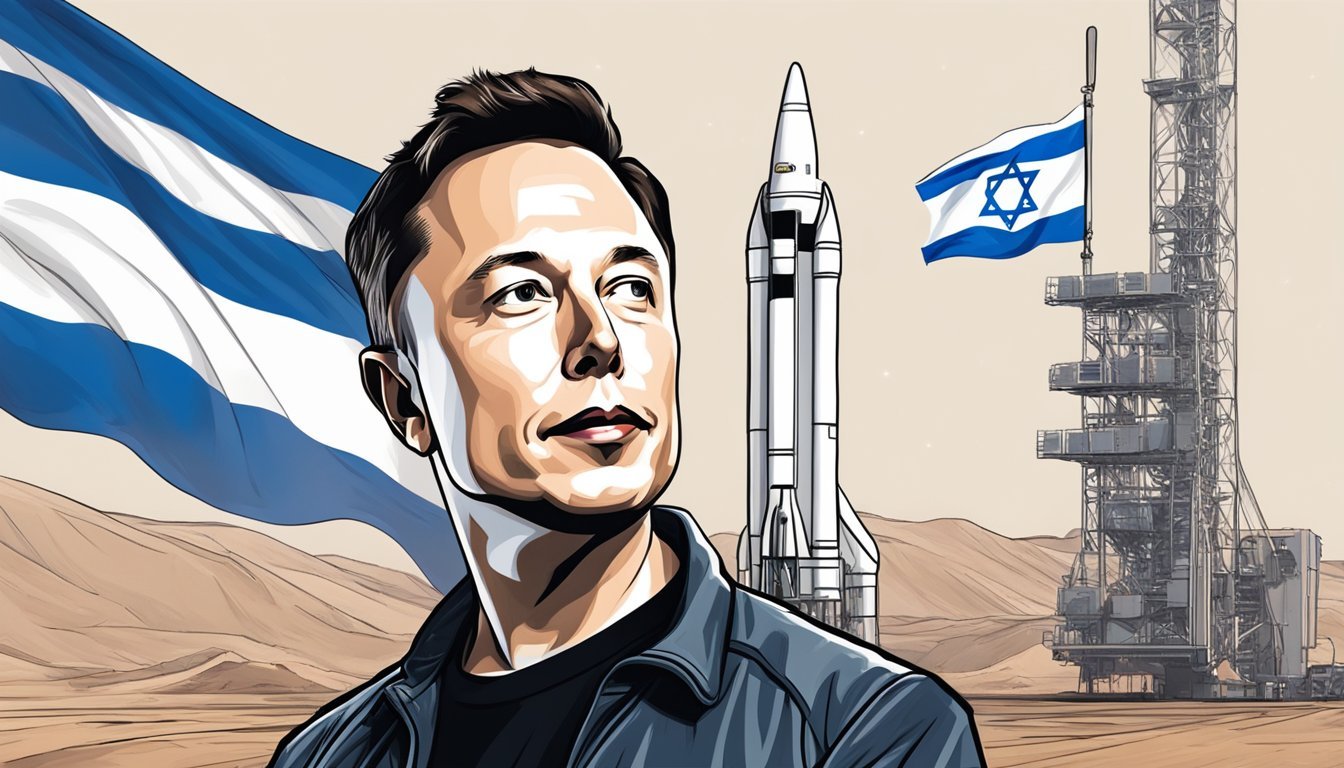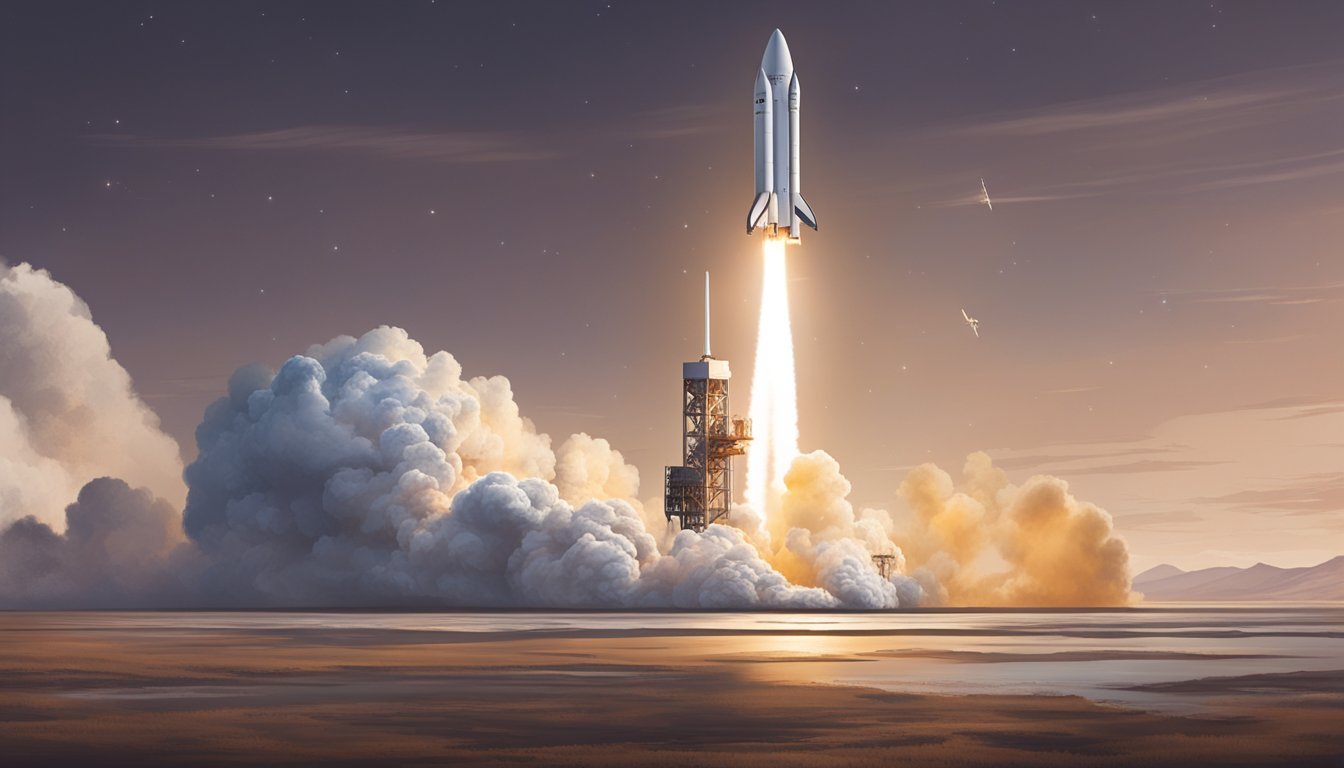Elon Musk and Israel: The Controversial Visit That Shook the Tech World!
Elon Musk's relationship with Israel took center stage in late 2023 when the billionaire entrepreneur visited the country amid controversy. The trip came after Musk faced backlash for endorsing a post on X (formerly Twitter) that many perceived as antisemitic. During his visit, Musk met with top Israeli leaders and toured areas affected by recent conflicts.
Musk's actions in Israel aimed to address criticism and demonstrate support for the country, while also discussing the role of social media in combating extremist content. The Tesla CEO held talks with Prime Minister Benjamin Netanyahu and President Isaac Herzog, focusing on issues like content moderation on X and the fight against online antisemitism. Musk also visited a kibbutz attacked by Hamas militants, gaining firsthand insight into the ongoing tensions in the region.
The visit highlighted the complex intersection of technology, politics, and social responsibility that Musk navigates as the owner of a major social media platform. It underscored the global influence of tech leaders and the scrutiny they face when addressing sensitive geopolitical issues. The trip also raised questions about the potential sharing of sensitive information between tech companies and foreign governments.
Biographical Background of Elon Musk
Elon Musk, born in 1971 in Pretoria, South Africa, has become a prominent figure in technology and entrepreneurship. His diverse background and ambitious ventures have shaped his career trajectory and global influence.
Elon Musk's Business Ventures
Elon Musk's entrepreneurial journey began with Zip2, a web software company he co-founded in 1995. He later co-founded PayPal, which revolutionized online payments. In 2002, Musk founded SpaceX, aiming to reduce space transportation costs and enable Mars colonization.
As Tesla CEO since 2008, Musk has driven the company's mission to accelerate sustainable energy adoption. Tesla has become a leader in electric vehicles and clean energy solutions.
Musk's other ventures include Neuralink, focused on developing brain-computer interfaces, and The Boring Company, which aims to create underground transportation networks.
Elon Musk's Influence on Social Media
Elon Musk's presence on social media platforms, particularly Twitter, has been significant and often controversial. His tweets have impacted stock prices, cryptocurrency markets, and public discourse on various topics.
In 2022, Musk acquired Twitter for $44 billion, promising to promote free speech on the platform. This move sparked debates about content moderation and the role of social media in society.
Musk's social media activities have also led to legal issues, including a 2018 SEC settlement over tweets about taking Tesla private. His online presence continues to draw attention and scrutiny from the public and regulators alike.
Elon Musk's Involvement with Israel
Elon Musk has developed significant ties with Israel through business ventures and diplomatic engagements. His interactions span technology collaborations and high-level meetings with Israeli leaders.
Business Relationships and Collaborations
Musk's business involvement with Israel centers on technology partnerships. In 2016, he visited the Jerusalem offices of Mobileye, an automotive chipmaker. This visit highlighted Tesla's interest in Israeli automotive technology.
Tesla has shown ongoing interest in Israeli innovations, particularly in areas relevant to electric vehicles and autonomous driving. The country's strong tech sector aligns with Musk's business interests in cutting-edge technologies.
Musk's space company SpaceX has also engaged with Israeli space initiatives, though specific collaborations remain limited in public knowledge.
Public Statements and Social Media Interactions
Musk's public engagement with Israel has been notable, especially on social media. He has visited Israel multiple times, sharing experiences on platforms like X (formerly Twitter).
In 2023, Musk met with Israeli Prime Minister Benjamin Netanyahu and President Isaac Herzog. These high-profile meetings addressed topics including antisemitism and technology.
During a visit to a kibbutz attacked by Hamas, Musk called for a stop to pro-Hamas propaganda. This stance garnered attention given his role as owner of X.
Herzog emphasized Musk's potential role in combating global antisemitism during their meeting. This discussion highlighted the intersection of Musk's tech influence and geopolitical issues.
Technological Innovations in Israel
Israel has become a hub for cutting-edge technologies, attracting major global companies. Tesla and SpaceX, both led by Elon Musk, have made significant inroads in the country's tech landscape.
Tesla's Presence in Israel
Tesla entered the Israeli market in 2021, introducing its electric vehicles to local consumers. The company opened a showroom in Tel Aviv, showcasing its Model 3 and Model Y vehicles.
Tesla's arrival sparked interest in electric mobility among Israelis. The automaker partnered with local charging infrastructure providers to expand the network of charging stations across the country.
Tesla's self-driving technology has also garnered attention from Israeli tech firms. Several startups in the country are working on autonomous driving solutions, potentially creating synergies with Tesla's research and development efforts.
SpaceX and Starlink Connectivity Solutions
SpaceX's Starlink satellite internet service received approval to operate in Israel in 2023. This move aimed to enhance internet connectivity in remote areas of the country.
The Israeli government reached an agreement with Starlink to provide services in Israel and parts of the Gaza Strip. This decision was seen as a step toward improving digital infrastructure in the region.
Starlink's low Earth orbit satellite network offers high-speed internet access, potentially benefiting Israeli businesses and residents in areas with limited terrestrial internet options. The technology could also support Israel's defense and security sectors, providing reliable communication channels in critical situations.
Elon Musk's Influence on Media and Advertising
Elon Musk wields significant sway over media narratives and advertising practices through his social media presence and business ventures. His unconventional approach has reshaped how companies engage with audiences and promote their products.
Media Matters and Social Platforms
Musk's acquisition of Twitter in 2022 marked a pivotal moment in social media history. He implemented sweeping changes to the platform's content moderation policies and user verification system. These actions sparked intense debate about free speech and digital governance.
Musk's own Twitter activity often drives news cycles and shapes public discourse. His tweets have the power to move markets and influence global events. Media outlets frequently report on his social media posts, amplifying his reach beyond the platform itself.
The tech mogul's relationship with traditional media is complex. He often bypasses established channels, preferring direct communication with his audience through social platforms. This approach has both challenged and transformed how news organizations cover high-profile figures and tech industries.
Advertising Strategies of Musk-Owned Companies
Tesla, Musk's electric vehicle company, has redefined automotive advertising. The brand relies heavily on word-of-mouth marketing and organic social media buzz rather than traditional paid advertisements. This strategy has proven highly effective, with Tesla becoming a household name despite minimal ad spending.
SpaceX, another Musk venture, leverages live-streamed rocket launches and missions to generate public interest and media coverage. These events serve as powerful marketing tools, showcasing the company's technological prowess to a global audience.
Musk's companies often blur the lines between product announcements and entertainment. High-profile events, like Tesla's Cybertruck reveal, generate massive publicity and engagement. This approach turns product launches into cultural moments, maximizing exposure at minimal cost.
Socio-Political Impacts
Elon Musk's involvement with Israel has sparked debates about free speech, antisemitism, and social media's role in shaping public discourse. His actions and statements have drawn both praise and criticism from various groups.
Elon Musk, Free Speech, and Hate Speech
Musk's acquisition of Twitter (now X) raised concerns about content moderation policies. His emphasis on free speech has been challenged by the spread of hate speech on the platform. Critics argue that relaxed moderation has led to an increase in antisemitic content.
The Anti-Defamation League has voiced concerns about rising antisemitism on X. Musk's response to these issues has been inconsistent, at times defending free speech principles and at others taking action against hate speech.
Response to Antisemitism and Propaganda
Musk's visit to Israel was seen as an attempt to address accusations of enabling antisemitism on X. He toured areas affected by Hamas attacks and met with Israeli leaders. This move was interpreted as a gesture to repair relations with Jewish communities and combat antisemitism allegations.
The trip also highlighted the complex relationship between tech moguls and geopolitics. Musk's influence extends beyond business, affecting social and political spheres. His actions on X have implications for the spread of propaganda and misinformation, including conspiracy theories like the "Great Replacement."
Controversies and Legal Challenges
Elon Musk has faced several contentious issues related to Israel and the Jewish community. His actions and statements have sparked debates and led to legal scrutiny.
Thermonuclear Lawsuit Remarks
Musk threatened a "thermonuclear lawsuit" against the Anti-Defamation League (ADL) in September 2023. He accused the ADL of falsely labeling him and X (formerly Twitter) as antisemitic, claiming it caused a 60% drop in U.S. advertising revenue. Musk argued the ADL's actions amounted to defamation.
The billionaire later backtracked, stating he was "pro free speech" but against antisemitism. This incident highlighted tensions between Musk's platform policies and concerns about hate speech.
Allegations of Discrimination and Conspiracy Theories
Musk faced criticism for endorsing an antisemitic conspiracy theory on X in November 2023. He agreed with a post claiming Jewish communities push "hatred against whites." This prompted backlash from Jewish groups and advertisers.
Major companies paused advertising on X due to concerns about antisemitism. The White House condemned Musk's post as "unacceptable." Musk later apologized during a visit to Israel, claiming he was against antisemitism.
These controversies led to increased scrutiny of Musk's companies. U.S. and Israeli officials expressed concerns about his handling of sensitive information at SpaceX, prompting federal investigations into potential security violations.
Global Issues and Humanitarian Efforts
Elon Musk's involvement in global crises has drawn both praise and criticism. His actions and statements have significant implications for conflict zones and international relations.
Starlink's Role in Conflict Zones
Starlink, Musk's satellite internet service, has been offered to aid organizations in Gaza. This move came in response to communication blackouts resulting from Israel's military operations. The service aims to provide connectivity to internationally recognized humanitarian groups working in the area.
Musk's decision to activate Starlink in Gaza has sparked debates about the role of private technology in conflict zones. While it could potentially assist aid efforts, concerns have been raised about its potential misuse by militant groups like Hamas.
Elon Musk's Stance on Global Crises
Musk has taken public stances on various global issues, including the Israel-Hamas conflict. He announced that X (formerly Twitter) would donate advertising and subscription revenue associated with the war in Gaza to hospitals in Israel.
This decision highlights Musk's attempt to address humanitarian needs in the region. However, it has also led to discussions about the neutrality of tech platforms in geopolitical conflicts.
Musk's statements on hostages and the ongoing situation in Gaza have drawn attention from international observers. His involvement has raised questions about the role of tech billionaires in shaping global narratives and humanitarian responses.







